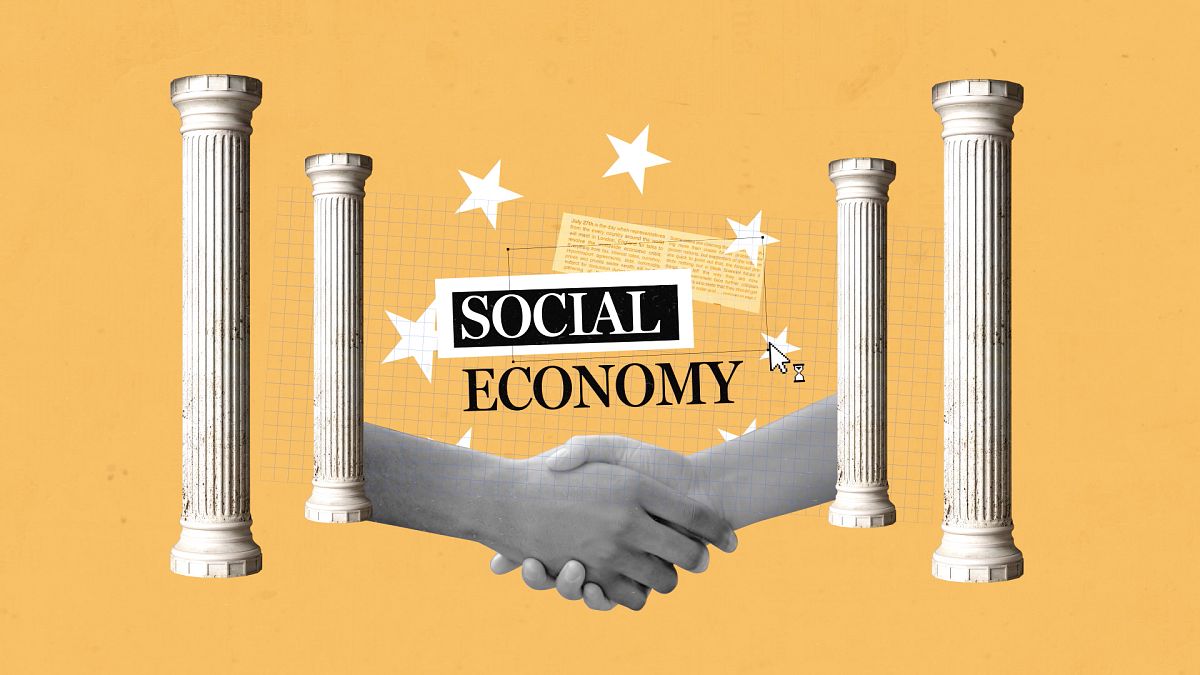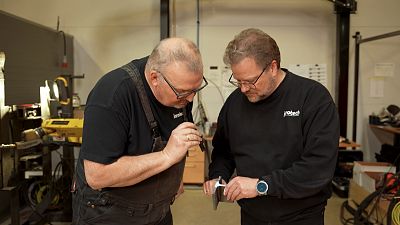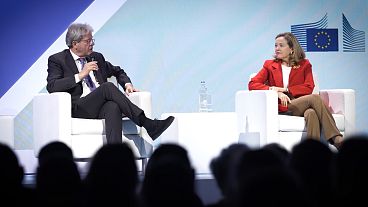In this Real Economy crash course, we look at how the EU plans to overcome the hurdles facing Europe's social economy, from finance to legal obstacles and visibility.
Debt, inflation, wages, and jobs... We know that it's tricky to understand how the economy works. That's why every episode of Real Economy brings you a one-minute Crash Course to bring you quickly up to speed on the big picture. We explain the headline concepts and lay out how public policy is reacting to changing current affairs and economic trends. Watch your one-minute Crash Course in the video above.
The social economy refers to entities seeking to make a social impact, rather than maximise profits.
There are currently 2.8 million social economy entities in Europe, employing 13.6 million workers. They range from cooperatives to social enterprises and are active in almost all economic sectors.
The social economy is key to achieving the principles enshrined in the European Pillar of Social Rights, such as equal opportunities, decent jobs and the inclusion of all people.
But it also faces several challenges such as access to finance, legal obstacles and lack of visibility.
That is why the European Commission has adopted an action plan centred around three priorities. These measures could help the EU achieve its goal of boosting employment as well as lifting 15 million people out of poverty or social exclusion by 2030.
Improving Member States’ policies and legal frameworks
In its action plan, the European Commission stated that creating the right conditions for Europe's social economy to thrive will require robust policy and legal frameworks
This includes taxation, public procurement and State aid frameworks which must be adapted to the needs of the social economy.
On 13 June 2023, the Commission adopted a proposal for a Council recommendation on developing social economy framework conditions.
The proposal aims to further access to the labour market and improve social inclusion by helping Member States integrate the social economy at a policy level.
By supporting the social economy, the proposal also hopes to encourage social innovation, sustainable economic and industrial development, and contribute to territorial cohesion in the Member States.
The Commission also published guidance for Member States on taxation frameworks for social economy organisations.
Opening opportunities for social economy enterprises to start up and scale up
The Commission outlines that social economy entities should benefit from business development support to help them start up and develop, and to reskill and upskill their workers.
For the period 2021-2027, the Commission wants to increase its support beyond the estimated €2.5 billion that was previously allocated to the social economy between 2014-2020.
The Commission has also launched the EU Social Economy Gateway, a comprehensive website where social economy entities can access all the information they need on EU funding, policies, training and initiatives.
Its InvestEU Programme also allows governments to support the social economy through investment, innovation and job creation in Europe over the period 2021-2027.
Increasing the recognition of the social economy’s value and potential
The Action Plan aims to increase the social economy's visibility and improve the recognition of its work and potential.
As such, the Commission has vowed to champion the role and specificities of the social economy, and carry out studies to better understand the social economy across the EU.
It has also promised to organise training courses so public officials have a greater understanding of the many aspects of the social economy, while promoting it at regional and local levels through cross-border exchanges.
Finally, the Commission has launched a “transition pathway” to help the social economy in its green and digital twin transition.



